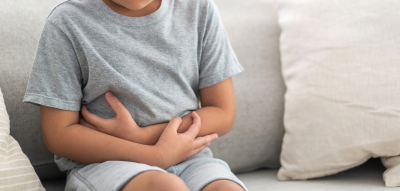New Brunswick, N.J., August 1, 2023 — Many children with diseases like cancer also have chronic pain that may have been caused or prolonged by their condition. There are many misconceptions or misbeliefs about pain in children. Karen Long-Traynor, PhD, clinical psychologist in the Pediatric Hematology/Oncology Program at Rutgers Cancer Institute of New Jersey, addresses these misconceptions and how parents can better understand them.
Some common misconceptions about chronic pain include:
1) The child is exaggerating or it is all in their head. Pain is a complex warning system in the body that incorporates information from physical cues, emotional and cognitive evaluations, and attention. This is true 100 percent of the time for 100 percent of people. Pain expression always involves both the head and the body.
2) My kid can play video games just fine and then complains of pain when I make them stop. Your child likely isn’t trying to manipulate you. Distraction takes attention away from pain which can physiologically lower pain expression.
3) Someone with pain will get used to it after a while and it won’t hurt as much. Because pain is such a fundamental warning system in our bodies, it doesn’t go away. An individual may learn to cope with it and work around it, but it still hurts.
4) Taking opioids will cause my child to become addicted. Opioids are often a first line treatment for pain for children with cancer or experiencing a sickle cell crisis. When taken as prescribed, these medications are an important tool for treating pain. While there may be a temporary physical dependence on the medication, this is different than an addiction. An addiction is using a substance for longer or at a higher does than you’re meant to, despite significant personal or social consequence.

Parents: Remember that chronic pain is a complex condition that has physical, psychological and social consequences. Children with this are more likely to experience anxiety, depression, and reduced friendships. Parents also struggle due to missed work and the emotional stress of caring for a sick child. Treatment of pain is best addressed with a multidisciplinary approach, such as a combination of medication, physical therapy, and psychological interventions. Psychologists work with children and parents to develop strategies to increase quality of life and decrease the experiences of pain.
Tips for Parents:
1) Getting back to regular activities is important even in the presence of pain. Prolonged rest can actually increase pain whereas getting back into routines can help regulate the body’s nervous system, reduce pain, and improve mood
2) Focusing too much on your child’s pain can be counter-productive. It’s natural to want to check in with your child and help with physical tasks, but this may bring unnecessary focus to the pain and give the message they aren’t capable – both of these can increase pain expression.
3)Working with a psychologist doesn’t imply that the pain is “in their head” or not real.
The Pediatric Hematology/Oncology Program at Rutgers Cancer Institute of New Jersey, the state’s only National Cancer Institute-designated Comprehensive Cancer Center, together with RWJBarnabas Health, provides help from specialists who tend to all aspects of care for the patient and family.
For journalists – contact:
Krista Didzbalis
Media Relations Assistant
732-507-8307
krista.didzbalis@rutgers.edu
For patient appointments/inquiries – contact:
844-CANCERNJ (844-226-2376)

